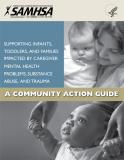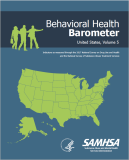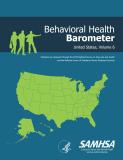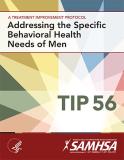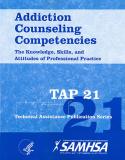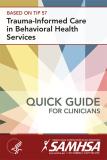
This guide has information for providers and administrators on caring for people who have experienced trauma or are at risk of developing traumatic stress reactions. It also addresses prevention, intervention, and treatment issues and strategies.
Units per Product
Download
Quick Guide based on TIP 57
File Type: PDF
File Size: 1.23 MB



